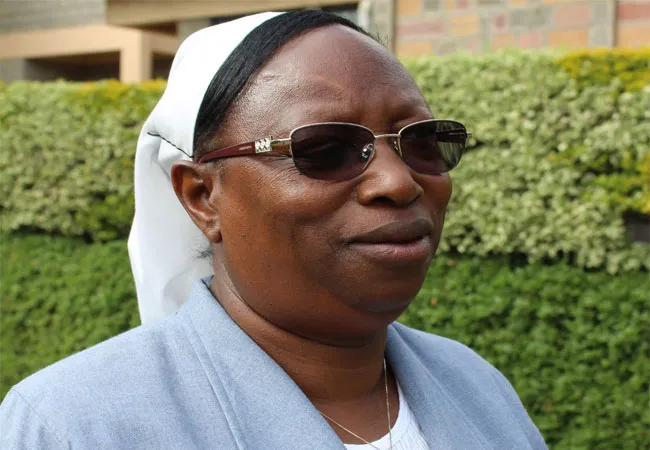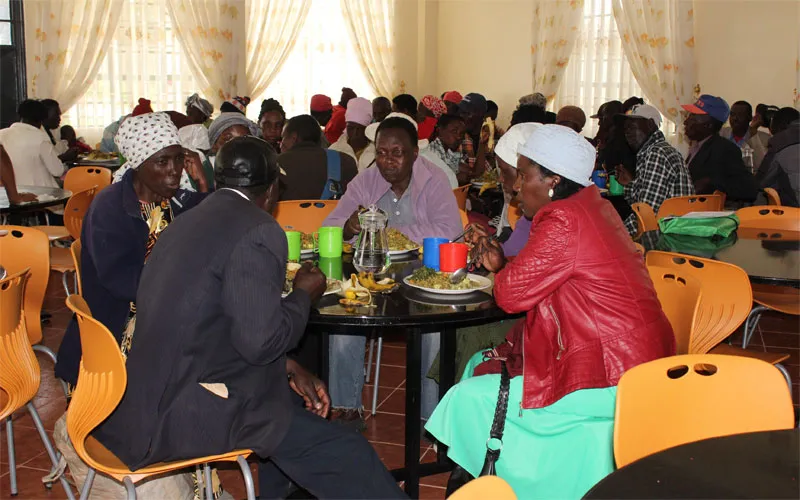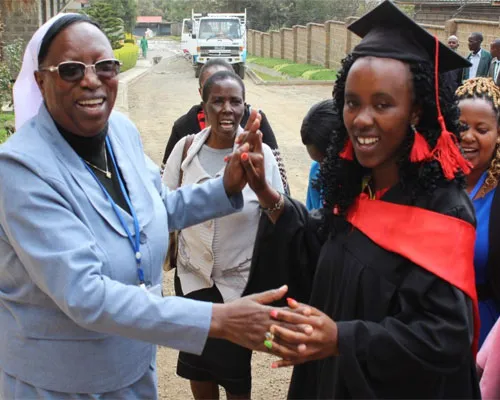At Upendo Village, four ASN sisters and a staff of over 30 members including hospital workers and community volunteers run educational, nutritional, health and economic empowerment programmes that target people infected or affected with HIV.
There is an education programme for vulnerable children, a nutrition programme, a grandmothers’ project for elderly women who take care of orphaned children and a Prevention of Mother to Child Transmission of HIV and AIDS (PMTCT) for HIV positive mothers aimed at ensuring they do not infect their children during breastfeeding.
As per records updated on January 20, Upendo Village has recorded an impact of 13,508 individuals including HIV infected individuals and people close to them.
The project has impacted 3,549 men, women and children living with HIV. These include 2,387 women, 795 men and 367 children born with the virus. The outreach programme has also helped 6,892 orphan vulnerable children whose parents died from AIDS.
In a myriad of income generating activities for people infected or affected with HIV, the project has so far empowered 605 individuals with dairy goats while 739 people were given improved chicken to rear. Some 40 households have been given beehives to practice bee-farming in areas around Naivasha while 60 people have been trained in crafts to make mats, bags and other artistry for sale.
(Story continues below)
Also working on the project, teaming up with Sr. Florence, are other ASN including Sr. Agnes Wanja, Sr. Agnes Waema and Sr. Elizabeth Mbogo.

Sr. Florence started the economic empowerment programme to prevent the spread of the virus.
“I have always been passionate about eradication of poverty because I know HIV is closely linked to poverty. A mother who can’t provide for her children is likely to engage in immoral acts just to survive,” the Kenyan nun says.
In the grandmothers’ project, the elderly women are given interest free loans that enable them set up and operate small businesses to earn a living. This is what has kept Teresia Wangui going, from the time that her daughter died many years ago, leaving behind an infected son.
“When my daughter died, no one from her husband’s family was willing to take the child that had been left behind because he was very sick. I took him and started visiting hospitals with him with (not) much help, until someone referred me to Sr. Florence,” recalls Wangui.

Recounting her encounter with the ASN nuns some 10 years ago, the 66-year-old Teresia Wangui narrates, “The sisters started giving us food and then gave me a dairy goat that gave us milk. The milk was so good on my grandson’s health and he improved significantly.”
Wangui also took the interest free loan and set up more than 10 makeshift grocery stalls from which she collected KSh1,200.00 (US$12.00) every day.
The elderly woman has been saving since then and recently, she constructed permanent stalls and shops that she is renting out.
Upendo Village is a community of support groups including four groups for HIV positive men and women, two support groups for grandmothers taking care of children whose parents succumbed to AIDS, one group for Prevention of Mother to Child Transmission of HIV and AIDS (PMTCT), one group for professionals and one group for discordant couples.
Finally, there are two support groups for HIV positive teenagers and children.
“As HIV positive teenagers discover themselves and try to forge relationships with uninfected people, they face rejection and many other challenges. Actually, without support, this is a group that is most likely to go into depression,” observes Sr. Florence.
Today, Upendo Village which had a humble start in two dilapidated classrooms, sometime in 2003, stands as a formidable force in empowering people infected and affected by HIV and AIDS, having won the support of the community where the facility operates.

“We have been embraced totally by the community. Most of our funding comes from the flower firms around us and many local donors who have chosen to sponsor a child or two through school,” she says, adding that DT Dobie, the motor-vehicle company has been mobilizing its staff since 2005 to pay school fees for vulnerable children at the Centre.
Sr. Florence who recently graduated from Masinde Muliro University of Science and Technology where she specialized in Peace and Conflict Studies for her PhD notes that though the situation of people living with HIV has improved in Kenya, a lot needs to be done to prevent new infections.
“Compared to the ‘90s when there was a lot of ignorance and stigma around HIV, I must confess that we are in a better place now. But the war isn’t over yet,” she says, adding, “We must continue to create awareness on the condition to prevent new infections especially among the youth. These days, people are no longer afraid of HIV because it doesn’t show on the face.”
Sr. Florence adds, “We need to educate the youth on moral behavior change. There is a growing false impression that AIDS is no more.”
All the gains notwithstanding, Upendo Village grapples with lack of resources, dependency syndrome that people living with AIDS have developed over the years and a growing donor fatigue that leaves the initiative with nowhere to run to for financial support.
“In fact, we stopped going for mission appeals abroad when we started sensing donor fatigue. With charity organizations, donors get to a point where they feel that they can’t do it anymore. Now we rely heavily on our own income generating projects and support from local donors,” the nun says.
To address the dependency syndrome, Upendo Village has started an exit strategy where older women who have risen to their feet are allowed out to create room for other more deserving members.
The organization also continues to grapple with demanding government procedures and heavy taxes imposed on its projects. Sr. Florence appeals to the Kenyan government to exempt faith-based projects geared towards supplementing service provision from taxation.

“It beats me why the government heaves taxes on our dispensary when we are providing complementary health services in this country. The government should consider exempting church organizations from such taxes,” she says.
Amid these challenges, Sr. Florence says she finds the strength to soldier on from prayer and “daily nourishment from the sacrament of Eucharist.”
“It is all about my faith. I want to help people to know that God lives and that He is a God of love. When I see people from very poor backgrounds get an education and people who were dying live for more than 15 years, I get the strength to soldier on in this course,” Sr. Florence says.
This story was first published by ACI Africa on 25 February 2020
Agnes Aineah is a Kenyan journalist with a background in digital and newspaper reporting. She holds a Master of Arts in Digital Journalism from the Aga Khan University, Graduate School of Media and Communications and a Bachelor's Degree in Linguistics, Media and Communications from Kenya's Moi University. Agnes currently serves as a journalist for ACI Africa.














